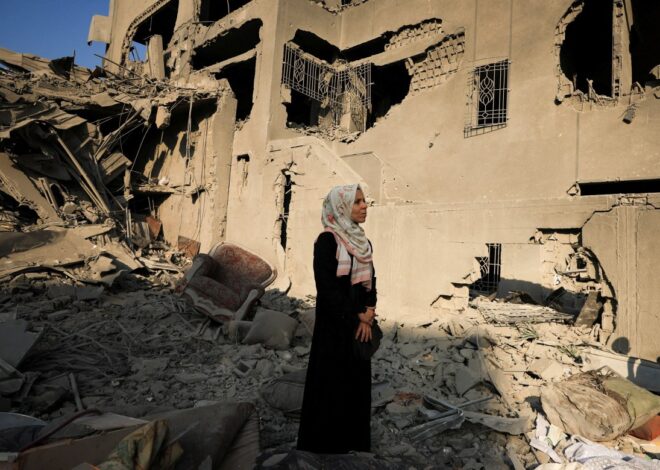Rubio visits Israel, expected to visit Qatar after strike on Hamas

Rubio Visits Israel Amid Ongoing Tensions
Context of the Visit
On Monday, Secretary of State Marco Rubio arrived in Jerusalem for a crucial meeting with Israeli Prime Minister Benjamin Netanyahu. This visit comes in the wake of significant military actions in the region, specifically an airstrike carried out by the Israeli military targeting Hamas negotiators in Qatar. The strike has drawn widespread condemnation across much of the Arab Middle East and has complicated ongoing discussions aimed at resolving the escalating conflict in Gaza.
Meeting with Netanyahu
During the meeting, Rubio and Netanyahu discussed the recent developments surrounding the Gaza conflict, particularly the implications of the airstrike on diplomatic efforts. The Israeli military’s decision to target Hamas negotiators has raised alarms about its potential to derail fragile peace talks and exacerbate tensions in an already volatile region. The discussions between Rubio and Netanyahu were likely focused on reaffirming U.S. support for Israel while also addressing the broader ramifications for regional stability.
Regional Reactions
The airstrike has sparked outrage among Arab nations, many of which view the actions as a direct affront to ongoing peace efforts. The reaction from the Arab world has underscored the delicate nature of the situation, as nations grapple with the implications of the strike on their diplomatic relationships and regional security. The complexities of the Gaza conflict, which has seen a resurgence in violence, have further complicated the landscape for negotiations.
Future Plans: A Visit to Qatar
Following his meeting in Israel, Rubio is expected to travel to Qatar. This visit is particularly significant given Qatar’s role as a mediator in the conflict and its relationship with Hamas. The Secretary of State’s trip to Qatar will likely aim to address the fallout from the Israeli airstrike and explore avenues for reinvigorating peace talks. Engaging with Qatari officials could provide an opportunity to clarify U.S. positions and seek a path forward in the ongoing crisis.
The Broader Implications
Rubio’s visit and the recent military actions highlight the intricate web of alliances and hostilities that characterize the Middle East. The U.S. has historically played a pivotal role in mediating conflicts in the region, and this latest development poses challenges to its diplomatic efforts. As the situation continues to evolve, the U.S. will need to navigate the delicate balance of supporting its ally, Israel, while also addressing the concerns of Arab nations and the humanitarian crisis in Gaza.
Conclusion
The ongoing conflict in Gaza, exacerbated by the Israeli airstrike on Hamas negotiators, presents a complex challenge for U.S. foreign policy in the region. As Secretary of State Marco Rubio engages in discussions with Israeli and Qatari leaders, the outcomes of these meetings will be closely monitored by both regional and international observers. The potential for renewed dialogue and the restoration of peace talks will depend on the ability of all parties involved to address the underlying issues that continue to fuel the conflict.
—
Key Facts
– Secretary of State Marco Rubio met with Israeli Prime Minister Benjamin Netanyahu in Jerusalem.
– The meeting occurred nearly a week after an Israeli airstrike targeted Hamas negotiators in Qatar.
– The airstrike has incited significant backlash across the Arab Middle East.
– Rubio is expected to visit Qatar following his meeting in Israel.
– The U.S. aims to support Israel while navigating the complex dynamics of the ongoing Gaza conflict.
Source: www.washingtonpost.com


